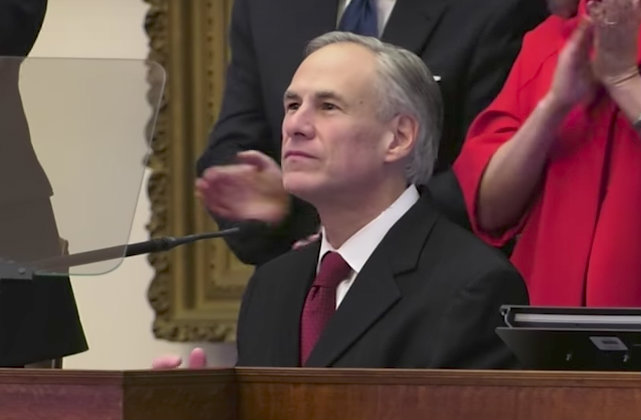
AUSTIN, Texas (AP) — For months, Gov. Greg Abbott stayed silent and Texas’ bathroom bill languished in the Legislature amid mounting criticism from LGBT activists and business groups.
Now Abbott’s all-in, becoming the nation’s first governor to fully embrace the issue. That makes the prospects for Texas blocking its own cities and school districts from instituting transgender-friendly policies on public restrooms suddenly bright — even with barely five weeks left before the legislative session ends May 29.
Abbott promised to cooperate with state lawmakers to “get a bill to my desk that I will sign into law.”
The Senate weeks ago rushed to approve a bill mandating that transgender Texans use public bathrooms corresponding to their birth-certificate gender. But that seemed a tough sell in the House, where Speaker Joe Straus criticized it as bad for business and the governor’s previous failure to weigh in offered no cover for would-be supporters.
Abbott’s blessing only came after the House said it was setting aside the Senate bill and instead advancing one prohibiting policies seeking to protect transgender rights in public bathrooms without specifically addressing birth-certificate gender.
Hundreds of people, including chambers of commerce representatives, decried the House bill as discriminatory during a recent, all-night hearing. But it should nonetheless be approved by committee this week, clearing it for a House floor vote.
North Carolina passed a law similar to the Texas Senate’s bill last year, sparking national outcry and costly boycotts. That state partially repealed the law last month, making it closer to what the Texas House is now considering. What’s likely to emerge in Texas should look more like North Carolina’s rolled-back version.
Here are some other top issues to watch this week in the Texas Legislature:
___
SANCTUARY CITIES
A sweeping, anti-“sanctuary cities” bill hits the House floor Wednesday and is expected to pass.
The measure compels state and local police to help enforce federal immigration law. It even allows for criminal charges against sheriffs and city or county officials who intentionally refuse to comply with attempts to deport people in the country illegally who already have been jailed on crimes unrelated to immigration.
The Senate already approved the bill, which has been bitterly opposed by immigrant rights groups, civil liberties organizations and top Texas sheriffs.
The House modified the Senate’s version, only allowing police to inquire about immigration status if someone is arrested, rather than simply being detained. But detractors say that’s not enough.
___
REDISTRICTING CASE
On Thursday, a panel of three federal judges in San Antonio will hold a hearing in the ongoing lawsuit challenging Texas’ state and congressional maps for the 2018 election.
That comes a week after a separate federal court ruled that boundaries for state House districts drawn by the Republican-controlled Legislature intentionally discriminate against minority voters. In less than a month, now, Texas’ voter ID law, congressional maps and state legislative maps, all enacted in 2011, have been found to violate the U.S. Voting Rights Act.
Minority rights groups could use the upcoming hearing to ask federal judges to redraw electoral maps for the 2018 elections.
They may also push for Texas to be pressed back into “preclearance.” That process once required Texas and other states with a history of racial discrimination to get changes to electoral law endorsed by federal courts. The U.S. Supreme Court struck down that provision in 2013, when it voided much of the Voting Rights Act — but it retained the chance that states could again fall under federal oversight in cases where intentional discrimination is found.
___
FETAL REMAINS
A bill requiring fetal remains from abortions and miscarriages to be buried or cremated is nearing House approval.
Texas’ health department previously set similar rules, but a federal judge blocked them. Lawmakers now want to codify the requirements into state law, though doing so will likely trigger a new round of federal lawsuits.
Supporters want to ban the practice of disposing of such remains in garbage disposals, even though medical clinics say they are almost always incinerated and placed in sanitary landfills. Abortion rights groups counter that the law will increase the cost of abortion.
A similar bill cleared the Senate last month. The house version has passed committee, making it eligible for a floor vote soon.
[Screengrab via The Texas Tribune]